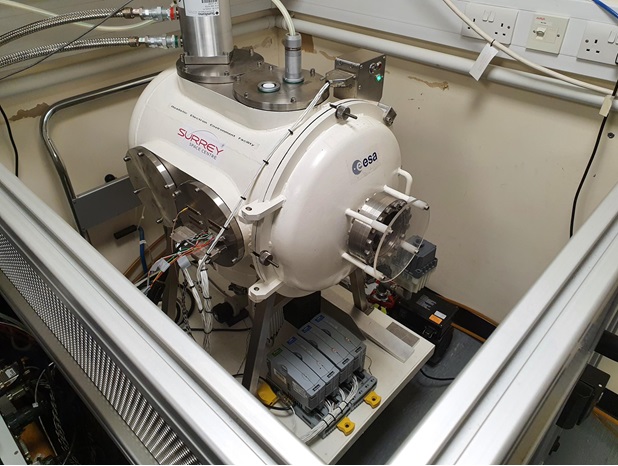The University of Surrey is assisting in the validation of microsatellite electronic systems using proton testing
Farnborough based KISPE Space Systems is collaborating with the University of Surrey on a programme of comprehensive proton-testing for its microsatellite platform microelectronics systems. These tests will enable the company to continue the development of the platform and drive the commercialisation of the microprocessors for future, low-cost small-satellite missions.
Following on from a previous project undertaken with the Surrey Space Centre (SSC) at the University of Surrey, the new project will be co-funded by KISPE and a grant from the £5 million SPRINT (SPace Research and Innovation Network for Technology) programme that provides unprecedented access to university space expertise and facilities. Such facilities include the “REEF” radiation chamber, which is used for bombarding the electronics with protons.
According to Dr John Paffett of KISPE Space, the company wants to ensure that its electronics are robust.
“This new SPRINT project with the University of Surrey team will position us to extend our knowledge of how these low-cost microprocessors perform in a representative space environment,” he says.

